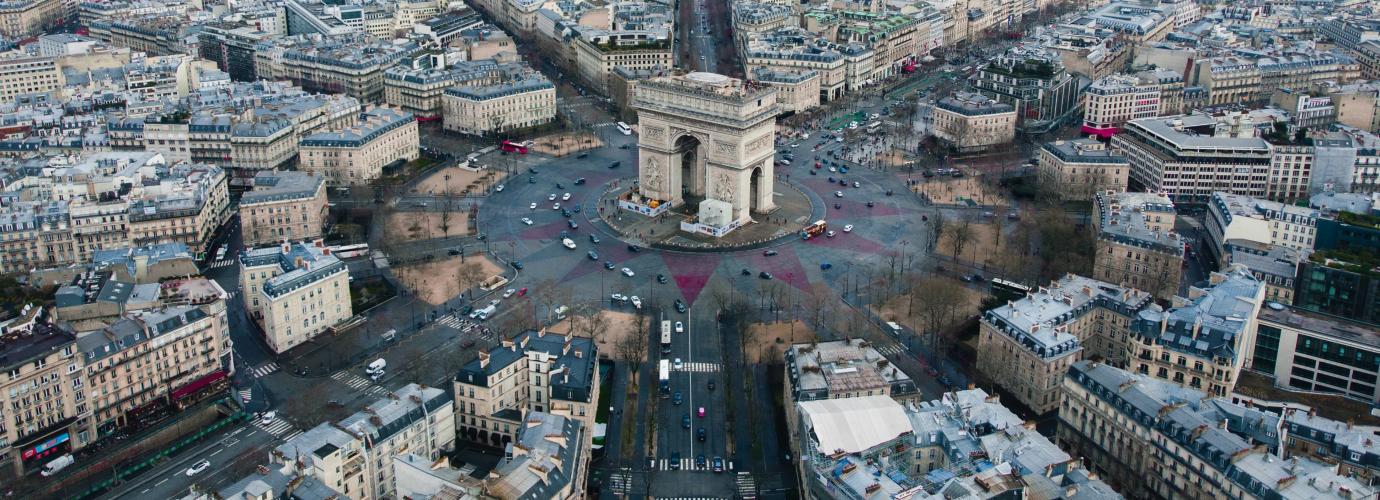The main institutions at national level are: the Presidency of the Republic, the Government and the Parliament. These institutions are responsible for the development and implementation of national policies.
Distribution of competences at national level
The President of the Republic
In France, the President of the Republic is elected for five years by direct universal suffrage. He appoints the Prime Minister and, on the latter's proposal, the other members of the government. According to Article 5 of the Constitution, he ensures that the Constitution is respected. He ensures, through his arbitration, the regular functioning of the public authorities as well as the continuity of the State. He is the guarantor of national independence, territorial integrity and respect for treaties. It is the Prime Minister who, elected on a programme, will direct government policies.
The Prime Minister and the Government
According to Article 21 of the Constitution, the Prime Minister directs the action of the Government. The Government determines and conducts the policy of the nation. The Prime Minister ensures the execution of laws and exercises regulatory power. He is also responsible for national defence. Finally, he coordinates government action by arbitrating policies decided in the various ministries. However, he is not the superior of the other ministers.
Within the government, school education and higher education are the responsibility of the ministers for national education and higher education. Apprenticeship is managed jointly by the ministries in charge of education and labour.
The parliament
According to Article 24 of the Constitution, the Parliament votes the law, controls the action of the Government and evaluates public policies. It comprises the National Assembly and the Senate. The deputies to the National Assembly, whose number cannot exceed 577, are elected by direct suffrage. The Senate, whose number of members cannot exceed 348, is elected by indirect suffrage. It ensures the representation of the territorial communities of the Republic.
The French Constitution defines an area of law (Article 34), which is the responsibility of the legislator (Parliament), and an area of regulation (Article 37), which is the responsibility of the executive, i.e. the government. In the case of education, only the "fundamental principles of education" are the domain of the law, which will define the main principles and objectives of the education system. The latest of these is Law No. 2019-791 of 26 July 2019 for a school of trust. However, within the general framework thus defined, the definition and implementation of education policy are the responsibility of the government, with Parliament only intervening for the annual vote on the budget of the ministries responsible for national education, higher education and labour.
Distribution of competences within territorial authorities
The different levels of territorial authorities (region, department, municipalities and inter-municipal groupings) have responsibilities in the management of national policies.
The Region
The region is a decentralised territorial authority with an assembly elected by the population of its territory (the regional council). There are currently 13 regions in France. According to Article L4221-1 of the Code des Collectivités Territoriales, the region is responsible for promoting the economic, social, health, cultural and scientific development of the region, supporting access to housing and the improvement of housing, supporting urban policy and urban renewal, and supporting education policies and the development and equality of its territories, as well as ensuring the preservation of its identity and the promotion of regional languages, while respecting the integrity, autonomy and powers of the départements and cities.
More specifically in terms of education, according to article L4221-1-1 of the same code, the region is responsible for the construction, reconstruction, development, maintenance and operation of secondary schools. In this respect, the metropolis ensures the reception, catering, accommodation as well as general and technical maintenance via its personnel, with the exception of the missions of supervision and monitoring of pupils, in the high schools for which it is responsible.
The Départment
The départment is a decentralised territorial authority - with an assembly elected by the population of its territory (the departmental council). According to article L3211-1 of the Code des Collectivités Territoriales, the departmental council is competent to implement any aid or action relating to the prevention or management of situations of fragility, social development, the care of young children and the autonomy of individuals. It is also responsible for facilitating access to rights and services for the public for which it is responsible.
In the field of education, the department is responsible for the construction, maintenance and equipment of secondary schools and the management of technical, labour and service staff.
France has 96 metropolitan départments and 5 overseas départments (which at the same time have the status of regions: Guadeloupe, Guyana, Martinique, Mayotte, Reunion).
The town
The twon is the basic administrative community, the smallest French administrative subdivision. The municipal council is elected by direct universal suffrage. It elects the mayor from among its members, who is both the head of the municipal executive and the agent of the State. The mayor is responsible for policing his or her jurisdiction, under the supervision of the prefect.
According to Article L2121-29 of the Code des Collectivités Territoriales, the municipal council regulates the affairs of the commune through its deliberations. Among its powers, the municipal council issues wishes on all subjects of local interest; votes on the budget, approves the administrative account (executed budget); draws up and updates the territorial coherence plan (SCOT), the sustainable development project and the local urban plan (PLU). Finally, according to article L2121-30 of the same code, the municipal council decides on the creation and location of public elementary and nursery schools and classes after receiving the opinion of the State representative in the department.

